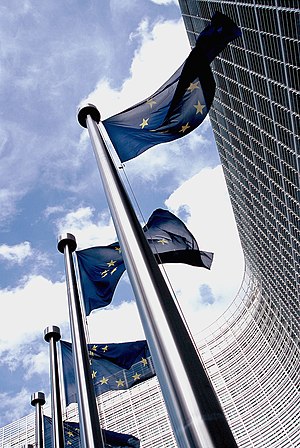
Image via Wikipedia
By Helia Ebrahimi
Despite May Day violence, the talks appeared to wrap up a €24bn programme of fiscal reforms, after 10 days of heated debate between finance ministry officials, the IMF, the European Commission and the European Central Bank.
The IMF has said it will provide the money over three years, along with Greece's partners in the eurozone. In return, Athens plans to cut its budget deficit by €24bn by implementing severe wage cuts, lowering pension benefits and raising taxes.
The draconian cuts gave rise to the May Day demonstrations, where thousands marched shouting slogans against austerity measures such as: "Hands off our rights! IMF and EU Commission out!"
However, investors hope a fixed deal will stop the spectre of the Greek crisis from spreading to other fragile EU economies such as Portugal and Spain, whose debt was downgraded by ratings agencies this week.
Market speculators have been blamed for aggravating Greece's woes, as bets on the likelihood it might default on its debt have sharply driven up its borrowing costs.
The country's prime minister, George Papandreou, is set to announce the final details of the bail-out first thing today and then immediately fly to Brussels to get support from EU governments.
![Reblog this post [with Zemanta]](http://img.zemanta.com/reblog_a.png?x-id=2715cb9a-e288-4cce-9697-05dee4b5f4ad)